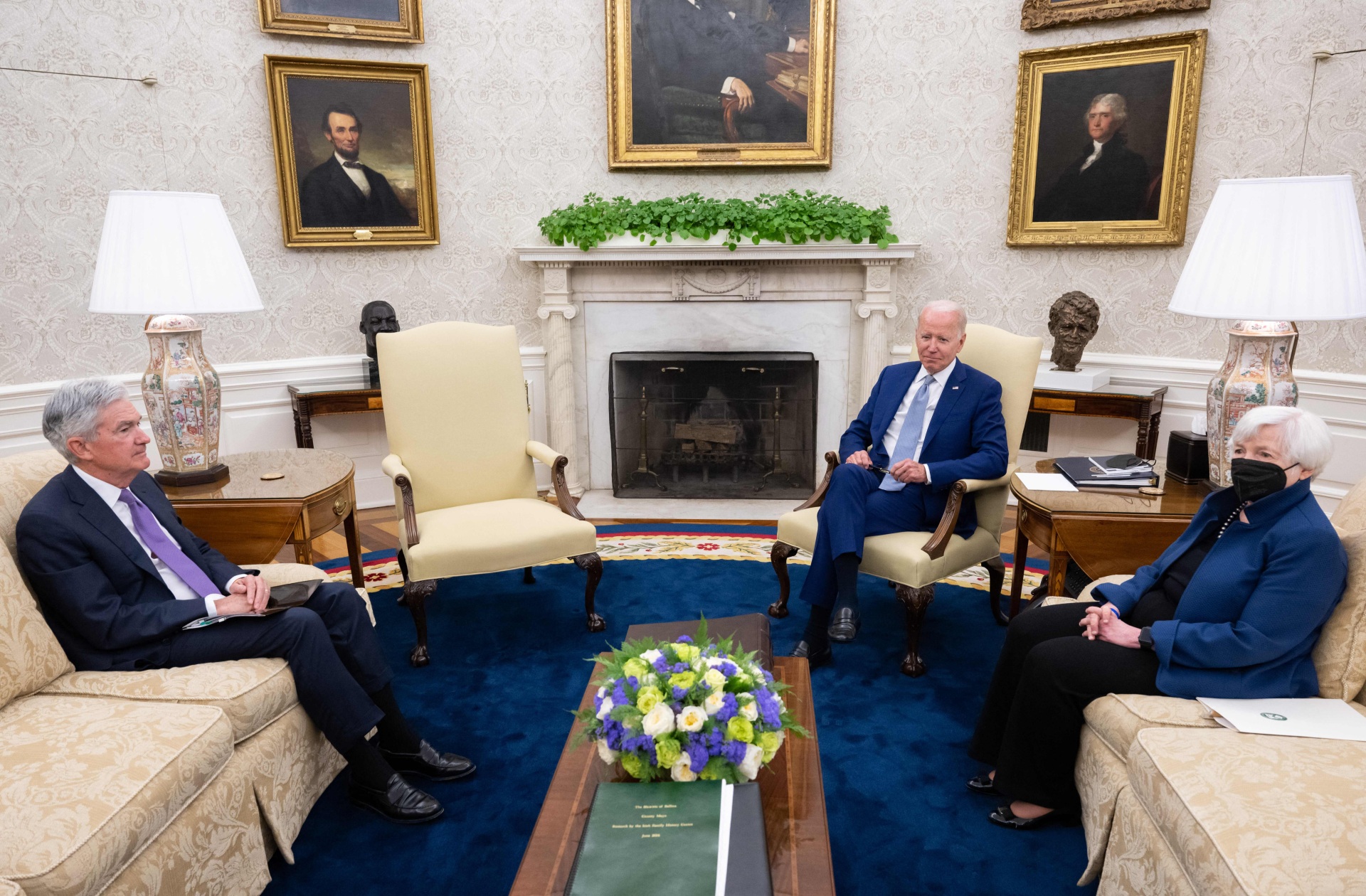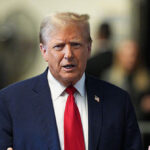
The White House launched a campaign this week to shift the public’s perception away from the idea that inflation is the result of the Biden administration’s policies.
The centerpiece was President Biden’s meeting Tuesday with Federal Reserve Chairman Jerome Powell and Treasury Secretary Janet Yellen. There was also an op-ed in the Wall Street Journal about inflation. And Yellen appeared on CNN confessing that she was wrong to call inflation transitory last year and emphasizing that the administration agrees with Americans that inflation is much too high.
So did Biden come away from the meeting with a plan carefully built by Yellen and Powell to bring down inflation? Are they inaugurating some big combined monetary and fiscal policy crusade to resurrect price stability without toppling the economy into a punishing recession? Of course not. The meeting at the White House and the Yellen apology tour are not really about addressing inflation. They are part of an effort to “contain the political damage caused by inflation,” as the Washington Post put it. The aim was for the White House to “demonstrate to the public that it is responding to its concerns.”

President Joe Biden (center), Federal Reserve Chairman Jerome Powell (left), and Treasury Secretary Janet Yellen (right) meet in the Oval Office on May 31, 2022. (SAUL LOEB/AFP via Getty Images)
The Biden administration operates in accordance with a theory of magical policy making. The theory holds that reality is really a matter of perception and that perceptions can be changed with the right combination of words. Change the representation of reality and you change reality itself. So transitory did not do the trick? Neither did blaming inflation on corporate greed or griping about Putin’s price hikes? So now they are going to laser focus on inflation.
The trouble with magical policy making is that it does not seem to work. One of the reasons inflation was permitted to get so bad is that the administration was originally convinced that inflation fears were some kind of Republican psychological operation. They did not bother to investigate the underlying reality because they assumed everything was just perception anyway.
Even at this late date, Secretary Yellen does not seem to understand why she did not see inflation coming. In her television appearances, she mentioned unforeseen supply shocks and Russia’s invasion of Ukraine. There was no acknowledgment that the Biden administration’s decisions to keep the pandemic emergency measures going through most of last year contributed to a huge build-up of excess savings and excess demand while doing nothing to stimulate the supply side. Asked in a CNBC interview that aired Wednesday if the administration planned to encourage more energy supply by incentivizing more oil production or opening the Keystone Pipeline, Yellen spent many words that amounted to “no doing.”
We do not mean to pick too much on Yellen. The Fed also got its inflation forecast badly wrong and has still not had any real reckoning with its error. The scope of this error and its consequences are truly historic: the highest inflation in four decades, retirement plans delayed, family budgets strained by simple grocery bills, and the highest gas prices ever. Finding out why it happened should be one of the top priorities for the Fed and the U.S. Treasury. How could the two great economic agencies of our government bungle the job of keeping inflation under control so badly? Why did they underestimate the threat to price stability?
A public accounting of what went wrong would provide some measure of assurance that the economy can be set right again. We’ve all had enough spell-casting as economic policy.







